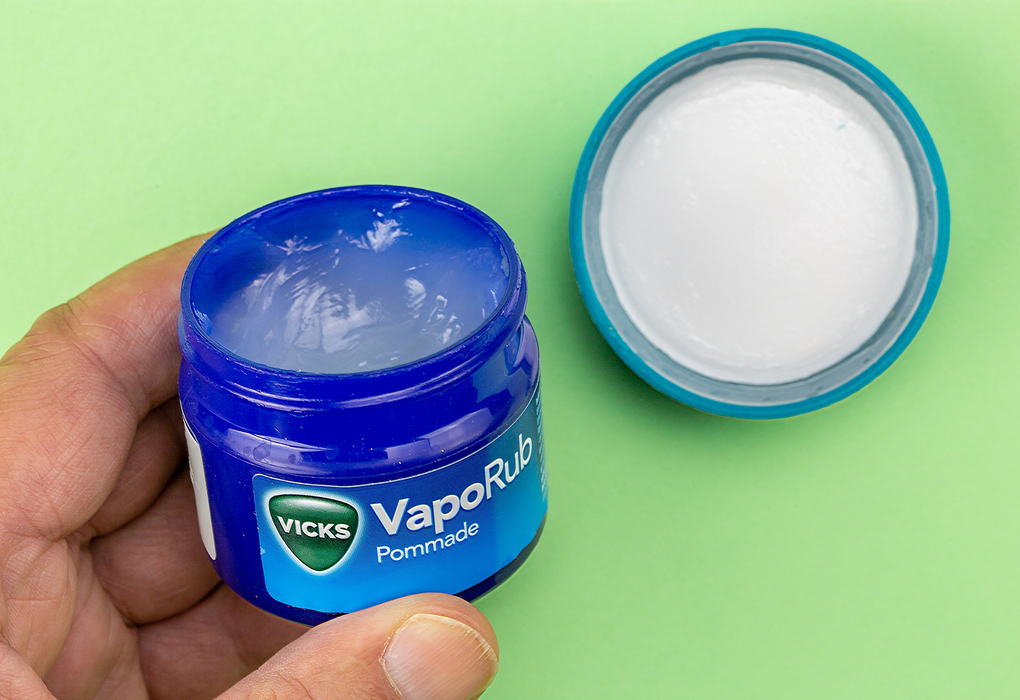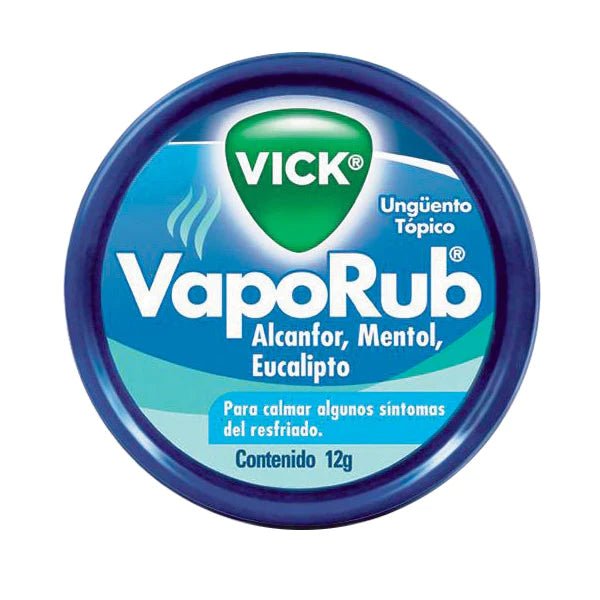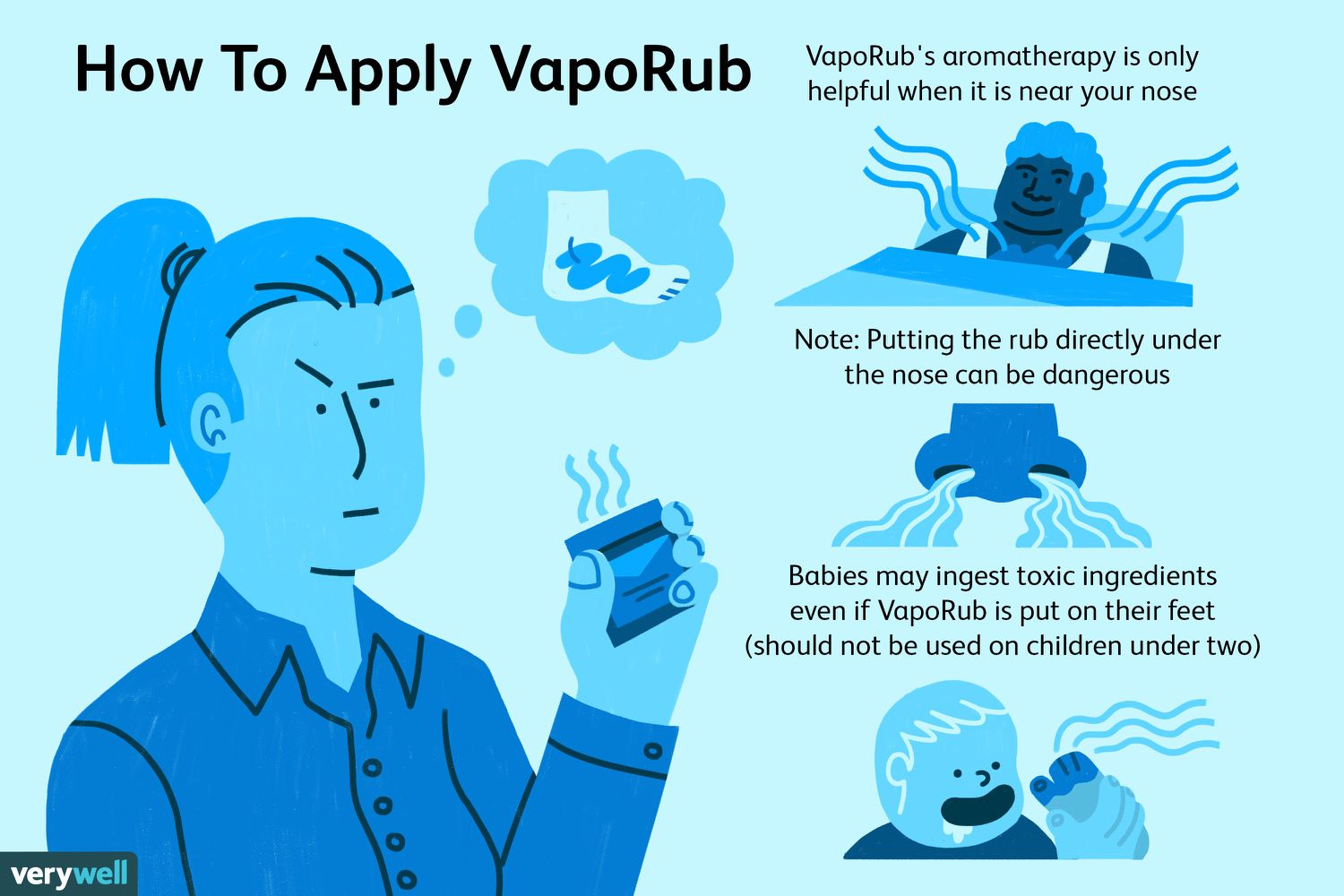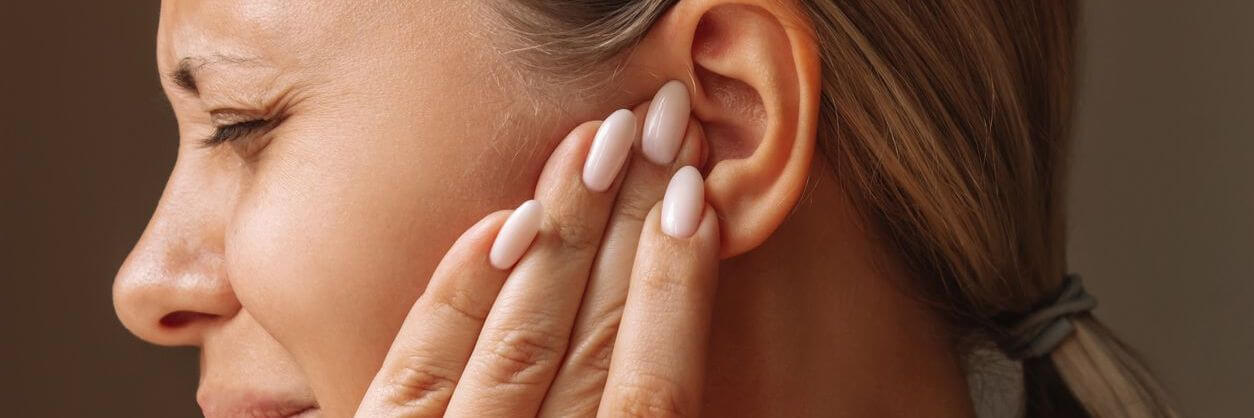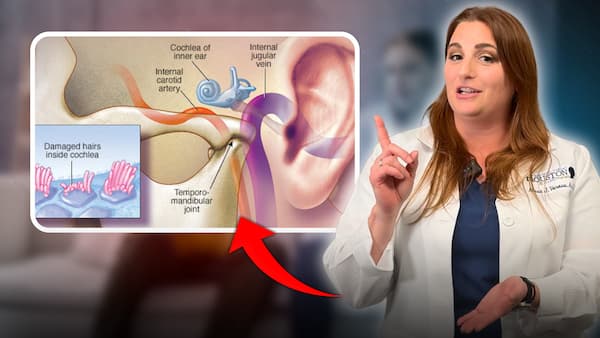Key Takeaways
- Despite popular claims online, there is no scientific evidence supporting the use of Vicks VapoRub as an effective treatment for tinnitus.
- Medical experts warn against placing Vicks VapoRub in or near the ear canal as it may cause irritation, inflammation, or even respiratory distress in some cases.
- The key ingredients in Vicks VapoRub (camphor, eucalyptus oil, and menthol) are not designed for ear treatments and could potentially worsen ear conditions.
- Clinically-proven tinnitus management approaches include sound therapy, cognitive behavioral therapy, and lifestyle modifications.
- Always consult with a healthcare professional before trying any home remedy for ear-related conditions like tinnitus.
Tinnitus affects millions of people worldwide, causing frustrating sounds like ringing, buzzing, or humming with no external source. When conventional treatments fall short, many turn to home remedies—and Vicks VapoRub has emerged as a popular but controversial suggestion.
The internet is filled with anecdotal claims about using Vicks VapoRub for tinnitus relief. Social media posts, forums, and blogs suggest applying this common cold remedy near or even in the ear canal. But before you reach for that familiar blue jar, it’s crucial to separate fact from fiction about this purported treatment.
Vicks VapoRub and Tinnitus: The Popular Home Remedy Claim
“Vicks VapoRub 10ml Display – ZYFOK FOODS” from zyfokfoods.com and used with no modifications.
The typical recommendation circulating online suggests placing a small amount of Vicks VapoRub on a cotton ball or swab and gently inserting it near (but not into) the ear canal. Proponents claim the menthol vapors can somehow relieve the persistent sounds of tinnitus, offering temporary or even lasting relief. Some variations suggest applying it around the ear or behind the ear rather than inside the ear itself.
These claims have gained traction particularly among those desperate for relief from chronic tinnitus—a condition that can significantly impact quality of life, sleep, and mental health. The appeal lies in Vicks being an accessible, affordable option that’s already in many medicine cabinets. For those exploring other treatments, the science behind Lipo-Flavonoid Plus might also be of interest.
“I’ve tried everything for my tinnitus, and nothing from my doctor helped. Then someone online suggested Vicks VapoRub near my ears. I was skeptical but desperate enough to try anything. While some people swear by it, I personally found no relief, and my doctor later warned me it could potentially harm my ears.” — Anonymous tinnitus sufferer
The origins of this remedy are unclear, but it seems to have gained momentum through social media and word-of-mouth. Many proponents theorize that the cooling sensation from menthol might somehow “distract” the brain from tinnitus sounds or that the vapors could reduce inflammation in the ear. However, these theories lack scientific foundation.
Healthline and other reputable health sources have noted the rise of this trend but caution that manufacturers of Vicks VapoRub do not claim it treats ear conditions, including tinnitus. In fact, the product’s labeling specifically indicates it’s designed for topical use on the chest, back, and throat—not the ears.
The Science Behind Vicks VapoRub
“Does Vicks VapoRub on Feet Work for Colds?” from www.verywellhealth.com and used with no modifications.
To understand why Vicks has become associated with tinnitus relief claims, we need to examine what this product actually is and how it works. Vicks VapoRub has been a household staple since 1890, primarily marketed for cold symptom relief through topical application or vapor inhalation.
Key Ingredients in Vicks VapoRub
Vicks VapoRub contains three active ingredients, each with specific properties:
- Camphor (4.8%): A cough suppressant and topical analgesic that creates a cooling sensation
- Eucalyptus oil (1.2%): Provides a strong aromatic scent that helps with nasal decongestion
- Menthol (2.6%): Creates cooling sensations and helps temporarily relieve minor aches and pains
The product also contains inactive ingredients like petroleum jelly, cedarleaf oil, nutmeg oil, thymol, and turpentine oil. These components create the distinctive smell and texture we associate with Vicks VapoRub. While effective for their intended purposes, none of these ingredients have been scientifically studied or approved for treating ear-related conditions.
How These Ingredients Might Affect Your Ears
The ear canal is a sensitive structure lined with delicate skin that can easily become irritated. Applying menthol, camphor, or eucalyptus oil—all of which create strong sensations on the skin—to this sensitive area could potentially cause significant discomfort or harm. The cooling sensation that makes Vicks effective for muscle aches and coughs could actually irritate the delicate tissues of the ear. For those seeking alternative remedies, exploring acupuncture for tinnitus might provide insights into managing ear discomfort.
Furthermore, the petroleum jelly base of Vicks VapoRub can create a blockage in the ear canal if inserted improperly. This blockage might temporarily muffle external sounds, which some might misinterpret as improvement in their tinnitus. In reality, this could lead to more serious problems like ear infections or impacted earwax.
Does Vicks VapoRub Really Help Tinnitus?
“Why 97% Of Physicians Don’t Do Research …” from www.clinicalleader.com and used with no modifications.
Despite the popularity of this home remedy, there is no scientific evidence supporting the use of Vicks VapoRub for tinnitus relief. Clinical studies on tinnitus treatments have never included Vicks VapoRub as a potential therapy, and the manufacturer makes no claims about its effectiveness for ear-related conditions. The perceived benefits reported by some users likely stem from placebo effects or temporary sensory distraction rather than any actual improvement in the underlying condition.
The American Tinnitus Association and other reputable medical organizations do not recognize Vicks VapoRub as a legitimate treatment option. In fact, medical experts consistently warn against introducing any substances not specifically designed for ear use into or around the ear canal. The risk of exacerbating tinnitus or causing additional ear problems far outweighs any potential temporary relief some individuals might report.
What Medical Experts Say About This Remedy
Otolaryngologists (ear, nose, and throat specialists) uniformly advise against using Vicks VapoRub for tinnitus. Dr. Kari, a cited expert in several health publications, explicitly states that the claim that Vicks alleviates tinnitus is a myth with no supporting evidence. More concerning, she notes that this practice can actually be dangerous. Medical professionals emphasize that the ear canal’s sensitive skin can become irritated or inflamed when exposed to the strong active ingredients in Vicks, potentially making tinnitus symptoms worse rather than better.
The Complete Lack of Scientific Evidence
A comprehensive review published in the Laryngoscope journal examined various over-the-counter “cures” for tinnitus and found that marketers’ promises simply don’t hold up to scientific scrutiny. Researchers Vendra et al. (2019) specifically noted that many popular remedies, including topical applications like Vicks, lack any clinical evidence supporting their effectiveness. The study concluded that many of these remedies potentially exploit the desperation of tinnitus sufferers while providing no real benefit.
While numerous studies have investigated legitimate tinnitus treatments—ranging from sound therapy to cognitive behavioral approaches—none have found Vicks VapoRub or its ingredients to be effective. The scientific consensus remains clear: using Vicks for tinnitus is unsupported by research and could potentially cause harm.
Potential Dangers of Using Vicks in Your Ears
“Can Tinnitus Be Dangerous? | Harley …” from www.harleystreetent.com and used with no modifications.
Using Vicks VapoRub in or around your ears poses several significant health risks that far outweigh any perceived benefits. The product was specifically designed for chest, back, and throat application—not for use near sensitive areas like the ears. The strong compounds in Vicks can irritate the delicate skin of the ear canal, potentially causing inflammation, pain, or allergic reactions in susceptible individuals.
More seriously, if Vicks were to enter the middle ear through a perforated eardrum (which may exist without your knowledge), it could cause severe damage to the middle and inner ear structures. This might result in increased tinnitus symptoms, vertigo, or even permanent hearing loss in extreme cases. The petroleum jelly base can also trap moisture in the ear canal, creating an ideal environment for bacterial growth and infections.
Research has found that even the vapors from Vicks can be problematic for some individuals. A study published in CHEST journal discovered that Vicks VapoRub may stimulate mucus production and cause respiratory distress in some people. Given the proximity of the ear canal to the respiratory system, these vapors could potentially exacerbate breathing difficulties, especially in those with pre-existing respiratory conditions.
Risks of Applying Vicks Near the Ear Canal
The ear canal’s skin is extremely thin and lacks the protective layers found elsewhere on the body, making it particularly vulnerable to irritation from strong substances like menthol and camphor. When applied near this sensitive area, Vicks can cause burning sensations, inflammation, and discomfort that may worsen tinnitus symptoms rather than relieve them. Additionally, some people experience allergic reactions to the ingredients in Vicks, which could manifest as severe itching, redness, or swelling if applied near the ear. These reactions might be particularly dangerous in the confined space of the ear canal, where swelling could potentially block the passage and cause pressure buildup.
Why Cotton Swabs Make This Method Even Riskier
Many online recommendations suggest applying Vicks using cotton swabs, which compounds the risk substantially. Medical professionals universally advise against inserting anything into the ear canal—including cotton swabs, which can push earwax deeper, damage the ear canal skin, or even rupture the eardrum if inserted too far. Combining cotton swabs with Vicks creates a dual hazard: the mechanical risk of the swab itself plus the chemical irritation from the Vicks. This combination significantly increases the chances of ear damage, impacted wax, or infection, potentially creating long-term problems far worse than the original tinnitus symptoms you were trying to address.
The Final Verdict on Vicks for Tinnitus
“Understanding Tinnitus: Causes …” from www.houstonent.com and used with no modifications.
Expert Consensus: Medical professionals strongly advise against using Vicks VapoRub for tinnitus. The risks outweigh any potential benefits, and there are safer, evidence-based alternatives available.
After thoroughly examining the evidence (or lack thereof), it’s clear that Vicks VapoRub should not be used as a treatment for tinnitus. The complete absence of scientific support, combined with potential risks to ear health, makes this popular home remedy inadvisable. While the desperation for relief from persistent tinnitus is understandable, putting substances not designed for ear use into or around the ear canal could worsen your condition or create new problems.
Instead of risking your ear health with unproven remedies, consider discussing evidence-based approaches with a healthcare provider who specializes in audiology or otolaryngology. Professional evaluation is particularly important because tinnitus can sometimes be a symptom of underlying conditions that require specific medical treatment. Self-medicating with Vicks or similar products could potentially delay proper diagnosis and treatment.
Remember that even “natural” or over-the-counter products can cause harm when used incorrectly or in unintended ways. The ears are incredibly sensitive organs, and their delicate structures deserve proper care based on sound medical advice rather than internet trends. While the search for tinnitus relief can be frustrating, prioritizing safety and evidence-based approaches offers the best chance for meaningful improvement.
For those struggling with tinnitus, know that effective management strategies do exist, even if there isn’t a universal cure. From sound therapy to cognitive behavioral techniques, many people find significant relief through properly supervised, clinically-validated approaches. Your journey to better hearing health should be guided by medical expertise rather than well-meaning but potentially harmful home remedy suggestions.
Frequently Asked Questions
Tinnitus affects approximately 15-20% of people worldwide, making it a common condition with many misconceptions. Below are answers to frequently asked questions about tinnitus treatments and specifically about using Vicks VapoRub for this condition.
These questions reflect common concerns from tinnitus sufferers seeking relief, but remember that individual medical advice from a healthcare professional should always take precedence over general information. For more insights, you can read about some tinnitus myths that are often discussed among those looking for solutions.
Why do some people claim Vicks VapoRub helps their tinnitus?
Some people may experience temporary perceived relief due to several factors unrelated to actual tinnitus improvement. The strong sensory stimulation from menthol and camphor could temporarily distract the brain from tinnitus sounds, similar to how scratching a mosquito bite provides momentary relief but doesn’t treat the underlying itch. Additionally, the placebo effect is powerful—believing a treatment will work often leads to perceived improvement even when no actual physiological change occurs. Finally, tinnitus naturally fluctuates in intensity throughout the day for many sufferers, so coincidental timing might lead someone to attribute normal variations to Vicks application when there’s no actual causal relationship.
Can menthol products provide any relief for tinnitus symptoms?
There’s no scientific evidence suggesting menthol products, including Vicks VapoRub, provide genuine relief for tinnitus. While the cooling sensation of menthol can create a temporary distraction from tinnitus perception, this doesn’t address the underlying causes or mechanisms of tinnitus. Some tinnitus sufferers report that strong sensory input of any kind (hot, cold, or tactile) might temporarily shift their attention away from the tinnitus sound, but these effects are typically brief and not therapeutic. Using menthol products near sensitive ear tissues also risks irritation and inflammation that could potentially worsen tinnitus symptoms in the long run.
Is it safe to put any oils or ointments near my ears?
Warning: The ear canal’s skin is 10 times more sensitive than regular skin and lacks the protective layers found elsewhere on the body. Products safe for external use may cause significant irritation inside the ear.
No, you should never put oils, ointments, or any substances not specifically formulated for ear use in or near your ear canal without medical supervision. The ear canal’s delicate skin can easily become irritated, and foreign substances may damage the eardrum or middle ear structures. Essential oils, which are sometimes recommended as “natural” remedies, are particularly problematic due to their high concentration and potential for severe irritation or allergic reactions. Even substances marketed as “ear oils” should only be used after consulting with a healthcare professional, as some conditions (like perforated eardrums) make any liquid introduction into the ear dangerous.
If you’re experiencing ear discomfort or tinnitus, consult an audiologist or otolaryngologist (ENT doctor) rather than attempting self-treatment with topical products. They can safely examine your ears and recommend appropriate, evidence-based treatments specific to your condition.
What natural remedies are actually recommended by doctors for tinnitus?
While no natural remedy has been clinically proven to “cure” tinnitus, several lifestyle approaches may help manage symptoms. Sound therapy using nature sounds or white noise can mask tinnitus and make it less noticeable. Stress reduction techniques including mindfulness meditation, yoga, and deep breathing exercises may reduce tinnitus perception, as stress often exacerbates symptoms. Some doctors recommend avoiding caffeine, alcohol, and high-salt foods, which can worsen tinnitus for certain individuals. Getting adequate sleep, exercising regularly, and protecting your ears from loud noises can also help prevent tinnitus from worsening. Many audiologists also recommend cognitive behavioral therapy (CBT), which helps retrain how your brain responds to tinnitus sounds.
Can tinnitus go away on its own without treatment?
Yes, tinnitus can sometimes resolve on its own, particularly when it’s temporary or has an identifiable cause that can be addressed. For instance, tinnitus caused by earwax buildup typically disappears once the wax is safely removed. Similarly, tinnitus related to medication side effects often improves when the medication is discontinued or adjusted. However, chronic tinnitus (lasting more than six months) is less likely to spontaneously resolve and usually requires proper management strategies. Even without complete resolution, many people find that their perception of tinnitus diminishes over time as the brain adapts through a process called habituation. This natural adaptation can be enhanced through sound therapy, cognitive behavioral techniques, and lifestyle modifications.
If you’re experiencing persistent tinnitus, it’s important not to simply wait and hope it disappears. Early intervention often leads to better outcomes, and a proper medical evaluation can rule out serious underlying conditions that might require specific treatment. For more insights, you can explore tinnitus myths and learn why consulting with a healthcare professional is always the recommended first step.
Ultimately, while the search for tinnitus relief can lead people to try unconventional remedies like Vicks VapoRub, the evidence clearly supports sticking with medically-sound approaches under professional guidance. Your ears deserve care based on science, not internet trends.
For more information about evidence-based approaches to managing tinnitus, consider visiting Soundly Health’s comprehensive resource center where you’ll find expert-reviewed guides to tinnitus relief methods that actually work. Additionally, you might be interested in exploring the science behind Lipo-Flavonoid Plus to understand if it really helps with tinnitus.
